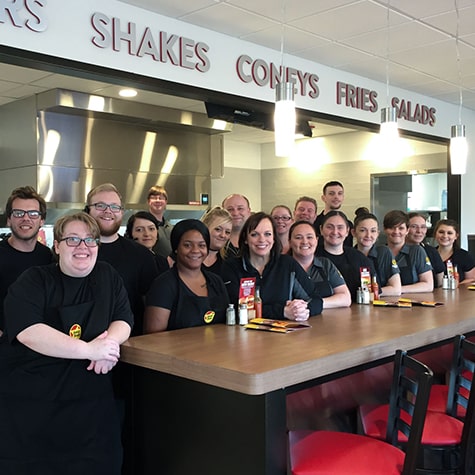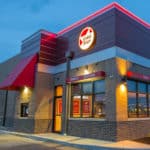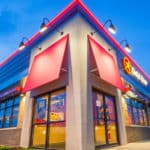Restaurants for Sale: What to Look for Before you Buy
 Two of the potential paths for entrepreneurs aiming to start a restaurant are opening their own concept or buying an existing restaurant. Each approach has pros and cons.
Two of the potential paths for entrepreneurs aiming to start a restaurant are opening their own concept or buying an existing restaurant. Each approach has pros and cons.
Starting a brand-new independent restaurant can be fraught with uncertainty and costly lessons learned by trial and error. However, that may not be the case when buying an existing one. Purchasing an existing restaurant is an attractive path, especially for upcoming restaurant owners interested in learning from existing ownership to avoid the risks and pitfalls those without the support face.
However, determining the reason for sale is task #1.
There are a variety of reasons why someone may be looking to sell their restaurant. These reasons include retirement, other business opportunities, or perhaps physical, mental, or emotional shortcomings.
No matter the reason, the key is figuring out exactly which kind of restaurant, and with what status, you are examining.
When looking at a restaurant, here are 10 things to check into before investing.
1. Why Are They Selling?
This is the natural first question, whether buying a business, a house, or a used car.
Is the owner struggling with debt? Or has the owner found unprecedented success and is looking to cash out on top? Perhaps the restaurant is reeling from a scandalous PR incident? No matter what the cause, determining the reason for the sale is crucial.
2. Examine the Financials
Your due diligence may start and end with the profit and loss (P&L) picture. Make sure you look into the critical factors of the P&L — that the COGS, Labor, and Occupancy are accurate, to name a few. Not only will this help you understand whether it’s worth buying, but you’ll need this intelligence for your business plan when you seek financing.
Furthermore, examining the company’s balance sheets, tax returns, and bank records is highly recommended.
Also, will the seller be paying off existing debts with the sale proceeds, or will you be assuming those debts?
3. How Much?
What is the sale price, and what does that include and exclude? For example, if you are continuing to operate as the same brand as before, does the contract obligate you to pay the seller an ongoing licensing fee?
Some deals include only the business assets (such as equipment, etc.), while some encompass the full, branded concept and intellectual property. Which package are you buying?
4. Equipment and Fixtures
What equipment assets are included? Agree upon a list of what is included, and assess the condition of each item. If you are inexperienced in this regard, hire a professional to take a look at each piece of equipment and give you an opinion on the “health” of the equipment. This can help you avoid having to replace, say, a high-ticket gas grill two months after you take ownership.
Get an idea of what maintenance costs will be when you operate the restaurant. Ideally, the seller will have service and maintenance records related to equipment as well as other paperwork and manuals.
Careless purchasers who don’t get specific in the contract may assume they are buying all the assets, only to show up after closing the deal to find an empty kitchen.
If you expect fixtures to be included in the purchase, make sure that’s the case. Consult an attorney, but typically, unless fixtures are specifically excluded in the contract, they should be included. Fixtures are anything that is affixed to the interior of the building, such as lighting, counters, and built-in equipment or vent systems.
If you will be renting the space rather than buying it, make clear which equipment and fixtures belong to the seller, and which actually belong to the landlord of the building.
5. Current Inventory
What inventory — such as food products, flatware, napkins, serveware, etc. — is included? Depending on your plans for the restaurant after purchase, you may or may not be interested in keeping the current inventory.
6. Management and Employees
If you intend to continue operating the same or similar concept that the seller was running, retaining a key manager or two may be a smart play. Question the owner for candid feedback about who is integral. You may ask those people to stay on.
Their involvement may be very helpful in maintaining continuity as the restaurant changes hands.
If you’re buying a failed or suffering restaurant, though, you likely want to clean house.
7. Permits and Licenses
Some registrations and licenses, but not all, can be transferred. For example, if you will serve alcohol, the previous owner’s permit may not carry over.
Consult with an attorney to understand the laws in your area and help make sure everything is in place.
8. Systems and Documentation
A well-run restaurant should have an efficient, organized software system in place. If not, consider that in your bid. Replacing a multiple POS system can cost upwards of $15,000, and that’s not a cost you want to be surprised by.
Ask about any operating documentation they have, such as employee handbooks, human resources files, and more.
9. Lease
In many situations, you may be buying a business that operates in a leased space.
If the seller is in the middle of a lease term, you may need to make sure the landlord will allow you to assume the lease. The lease itself can be the make-or-break scenario when purchasing a business. You need to ensure that the seller actually has the right to sub-lease or assign his space. From there, you’ll want to make sure that all other lessee obligations are to your satisfaction. This includes the remaining term, the rent, CAM’s, and dedicated parking spaces, to list a few.
Consult with a lawyer experienced in the restaurant world to better understand key lease terms for restaurants.
10. Outstanding Legal Issues or Tax Problems
Besides just current debts the seller may have — and this goes back to the “why are they selling?” question — are there any active lawsuits or judgments against the owner or the owner’s corporate entity? What about liens against the property, equipment, and fixtures?
If the seller is mired in a legal mess, you may want to negotiate buying only the assets and not the actual company that owns the restaurant. There are legal issues involved here, so be sure to talk with an attorney.
Also, investigate whether there is any potential re-zoning or development that may happen in the area that will be problematic.
Advantages of Franchising
So, buying a restaurant for sale can be a tricky proposition. Even the best due diligence can fail to turn over every rock, leading to unforeseen problems. As with buying a used car, issues may reveal themselves only after you have taken ownership.
The case is much different for entrepreneurs who instead buy a franchise restaurant. Franchise brands are very transparent, with information readily available in their legally required Franchise Disclosure Document (FDD). Plus, a potential franchisee can find plenty of information about the success level of other franchise owners.
Buying a franchise is also the wisest move for entrepreneurs who are entering the restaurant world without prior experience. Purchasing an existing independent restaurant is extremely risky, without the finely-tuned systems and support of a franchisor.
One prudent move is to open a location of an established chili restaurant franchise, with a proven system for success, poised for continued growth. Guesswork and trial-and-error lesson-learning are greatly minimized, allowing entrepreneurs to hit the ground running.



